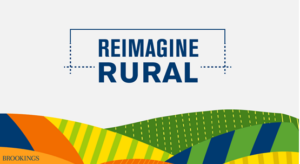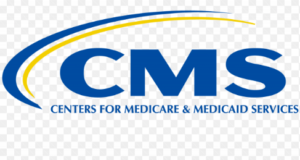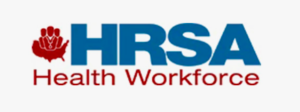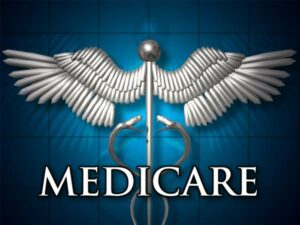 A recording of a May 2024 webinar describing how CAMC Greenbrier Valley Medical Center utilized telemedicine hubs to ensure access to care in rural West Virginia communities. The presentation discusses lessons learned, development of the program, and future plans. There’s also a panel discussion with telehealth, geriatric care, and rural health experts on improving healthcare delivery in rural areas. The Center for Excellence in Telehealth and Aging is a collaboration that includes the HRSA-supported Mid-Atlantic Telehealth Resource Center.
A recording of a May 2024 webinar describing how CAMC Greenbrier Valley Medical Center utilized telemedicine hubs to ensure access to care in rural West Virginia communities. The presentation discusses lessons learned, development of the program, and future plans. There’s also a panel discussion with telehealth, geriatric care, and rural health experts on improving healthcare delivery in rural areas. The Center for Excellence in Telehealth and Aging is a collaboration that includes the HRSA-supported Mid-Atlantic Telehealth Resource Center.
With New EMS Quality Measures, Florida Aims to Have a National Impact on Rural Care
 A feature article in The Rural Monitor features the Feasible, Actionable, Impactful and Relevant (FAIR) EMS Measurement Project, an initiative by the Florida Department of Health which developed rural-relevant EMS quality measures for use in the state and nationally.
A feature article in The Rural Monitor features the Feasible, Actionable, Impactful and Relevant (FAIR) EMS Measurement Project, an initiative by the Florida Department of Health which developed rural-relevant EMS quality measures for use in the state and nationally.
Preparing Behavioral Health Clinicians for Success and Retention in Rural Safety Net Practices

A study published by the Journal of Rural Health assesses how training in rural communities relates to confidence in skills important in their work settings, successes in jobs and communities, and anticipated retention. Here, a summary of the study is provided by 3RNET, a national nonprofit that helps rural practices expand their reach for posting job vacancies.
CMS is Extending Medicaid Unwinding Data Reporting
 The Centers for Medicare & Medicaid Services (CMS) issued this letter to inform Medicaid agencies that CMS is extending current state reporting requirements for certain metrics contained in the Unwinding Data Report. Monthly state reporting about renewal actions occurring on or after July 1, 2024, and fair hearing requests that have been pending for more than 90 days, will continue on an ongoing basis. CMS will continue reporting data publicly to maintain transparency into Medicaid and CHIP renewal outcomes at the national and state levels. Medicaid is an important source of insurance coverage in rural areas. The unwinding of the continuous Medicaid coverage provision has resulted in over 22 million enrollees being disenrolled as of May 23, 2024 and over 49 million have had their coverage renewed.
The Centers for Medicare & Medicaid Services (CMS) issued this letter to inform Medicaid agencies that CMS is extending current state reporting requirements for certain metrics contained in the Unwinding Data Report. Monthly state reporting about renewal actions occurring on or after July 1, 2024, and fair hearing requests that have been pending for more than 90 days, will continue on an ongoing basis. CMS will continue reporting data publicly to maintain transparency into Medicaid and CHIP renewal outcomes at the national and state levels. Medicaid is an important source of insurance coverage in rural areas. The unwinding of the continuous Medicaid coverage provision has resulted in over 22 million enrollees being disenrolled as of May 23, 2024 and over 49 million have had their coverage renewed.
Rural/Urban Differences in Housing Quality and Adequacy Released: Findings From the American Housing Survey, 2019

Among the key findings in this policy brief from the University of Minnesota Rural Health Research Center:
- Rural housing units had higher rates of several specific housing quality issues, including heating problems, utility interruptions, missing roofing or external building materials, and broken windows.
- Urban housing units had higher rates of flush toilet breakdowns, electric wiring problems, and indoor water leakage, compared to rural units.
- The prevalence of signs of mice or rats inside homes in rural areas was approximately double that observed in urban clusters and urbanized areas.
New Occupations Added to Guide for Licensure Portability
 The Multi-Discipline Licensure Resource Project is an effort supported by HRSA to improve licensure portability for health care professions working between states and for people who are geographically isolated. Previously, the site provided guidance for four disciplines: Psychology, Social Work, Physical Therapy, Occupational Therapy. New disciplines have been added: Counseling, Dentistry, Dietitians, Emergency Medical Services, Physician Assistants, Nursing, Advanced Practice Nursing, and School Psychologists.
The Multi-Discipline Licensure Resource Project is an effort supported by HRSA to improve licensure portability for health care professions working between states and for people who are geographically isolated. Previously, the site provided guidance for four disciplines: Psychology, Social Work, Physical Therapy, Occupational Therapy. New disciplines have been added: Counseling, Dentistry, Dietitians, Emergency Medical Services, Physician Assistants, Nursing, Advanced Practice Nursing, and School Psychologists.
Apply for Medicare ACO Primary Care Flex Model Request for Applications
 Deadline August 1. The Centers for Medicare & Medicaid Services (CMS) is now accepting applications for the ACO Primary Care Flex Model (ACO PC Flex Model). This voluntary model focuses on improving primary care delivery in the Medicare Shared Savings Program. Accountable Care Organizations (ACO)s participating in the ACO PC Flex model will receive monthly prospective primary care payments, replacing traditional fee-for-service reimbursement, for primary care services for all participating primary care providers, Federally Qualified Health Centers, and Rural Health Clinics. They will also receive an upfront Advanced Shared Savings Payment of $250,000. Organizations interested in participating must first apply to the Shared Savings Program by June 17 then submit a supplemental ACO PC Flex application questionnaire. CMS will host a webinar TODAY, June 6 at 2:00 pm Eastern to provide an overview of the ACO PC Flex Model’s application process.
Deadline August 1. The Centers for Medicare & Medicaid Services (CMS) is now accepting applications for the ACO Primary Care Flex Model (ACO PC Flex Model). This voluntary model focuses on improving primary care delivery in the Medicare Shared Savings Program. Accountable Care Organizations (ACO)s participating in the ACO PC Flex model will receive monthly prospective primary care payments, replacing traditional fee-for-service reimbursement, for primary care services for all participating primary care providers, Federally Qualified Health Centers, and Rural Health Clinics. They will also receive an upfront Advanced Shared Savings Payment of $250,000. Organizations interested in participating must first apply to the Shared Savings Program by June 17 then submit a supplemental ACO PC Flex application questionnaire. CMS will host a webinar TODAY, June 6 at 2:00 pm Eastern to provide an overview of the ACO PC Flex Model’s application process.
CMS CDO Application Open Season – Now Live & Available Year-Round!

CMS is pleased to announce the Certified Application Counselor Designated Organization (CDO) Application web form is now live and will remain available year-round!
CDOs are a vital component of the assister community. In states with a Federally-facilitated Marketplace (FFM), CDOs oversee Certified Application Counselors (CACs), who are annually trained and able to help consumers seeking health coverage options through the Marketplace.
Help us spread the word – the Centers for Medicare & Medicaid Services (CMS) invites new applicant organizations who want to become CDOs to apply.
This announcement applies only to organizations that:
- Wish to apply to the CDO program operating in an FFM state, and
- Do not currently have an active CMS-CDO agreement with CMS
Organizations with an active CMS-CDO agreement should disregard this message. If you are unsure if your organization has an active CMS-CDO agreement with CMS, please contact us at CACQuestions@cms.hhs.gov.
Only organizations that complete the two steps below and receive a CDO ID from CMS can certify staff or volunteers as CACs in an FFM state to provide enrollment assistance services.
To apply to become a CDO:
- Access and complete the CDO Application at https://mats.secure.force.com/CDOApplication/. CMS will review your application and send a determination email with your application status. Please allow up to 10 business days for this review.
- If CMS approves your application, your leadership contacts will receive a Preliminary Approval email.
- Your Organization Senior Official (OSO) listed on your application will receive an email from DocuSign containing directions and a link to your CMS-CDO Agreement and must sign using DocuSign.
- Please be sure to check your spam/junk folder and add cacquestions@cms.hhs.gov and DocuSign email dse@Docusign.net to your approved senders list.
- CMS will then review your signed agreement and send your leadership contacts a determination email. If CMS approves your agreement, you will receive a Welcome Packet email with a unique CDO ID and next steps. Please allow up to 5 business days for this review.
Resources for CDO Applicants
For an overview of the CDO Program and resources that walk users through the CDO application, please visit:
- CDO Application Information – information about who should apply and how to apply.
- CDO Program Information – information about who can become a CDO and CDO role responsibilities.
For questions or updates, you can email CACQuestions@cms.hhs.gov. Please include your organization’s name and address in the body of your email.
An Obscure Drug Discount Program Stifles Use of Federal Lifeline by Rural Hospitals

Facing ongoing concerns about rural hospital closures, Capitol Hill lawmakers have introduced a spate of proposals to fix a federal program created to keep lifesaving services in small towns nationwide.
In Anamosa, Iowa — a town of fewer than 6,000 residents located more than 900 miles from the nation’s capital — rural hospital leader Eric Briesemeister is watching for Congress’ next move. The 22-bed hospital Briesemeister runs averages about seven inpatients each night, and its most recent federal filings show it earned just $95,445 in annual net income from serving patients.
Yet Briesemeister isn’t interested in converting the facility into a rural emergency hospital, which would mean getting millions of extra dollars each year from federal payments. In exchange for that financial support, hospitals that join the program keep their emergency departments open and give up inpatient beds.
“It wasn’t for us,” said Briesemeister, chief executive of UnityPoint Health-Jones Regional Medical Center. “I think that program is a little bit more designed for hospitals that might not be around without it.”
Nationwide, only about two dozen of the more than 1,500 eligible hospitals have become rural emergency hospitals since the program launched last year. At the same time, rural hospitals continue to close — 10 since the fix became available.
Federal lawmakers have introduced a handful of legislative solutions since March. In one bill, senators from Kansas and Minnesota list a myriad of tactics, including allowing older closed facilities to reopen.
Another proposal introduced in the House by two Michigan lawmakers is the Rural 340B Access Act. It would allow rural emergency hospitals to use the 340B federal drug discount program, which Congress created in 1992.
The 340B program, named after its federal statute, lets eligible hospitals and clinics buy drugs at a discount and then bill insurance companies, Medicare, or Medicaid at market rates. Hospitals get to keep the money they make from the difference.
Congress approved 340B as an indirect aid package to help struggling hospitals stay afloat. Many larger hospitals say the cash is used for community benefits and charity care, while many small hospitals depend on the drug discounts to help cover staffing and operational shortfalls.
Currently, emergency hospitals are not eligible for 340B discounts. According to a release from U.S. Rep. Jack Bergman (R-Mich.), the House proposal would “correct this oversight.” Backers of the House bill include the American Hospital Association and the National Rural Health Association.
Affordable Broadband Program Sputters to a Halt, Ending Free Internet for 3.2 Million Rural Households

On June 3, 2024, the Federal Communications Commission (FCC) will is pay out the dregs of a fund that Congress established in 2021 to help lower-income families connect to the internet.
The Affordable Connectivity Program, part of the landmark 2021 Infrastructure Investment and Jobs Act, is out of money as of May 31, 2024.
This month, the FCC sent final payments to some 23 million households that participated in the program. About 14% of participants (3.2 million households) were rural, according to a Daily Yonder analysis of FCC data.
The White House laid blame for closure of the program at the feet of Republican lawmakers who have not advanced pending legislation to continue funding.
“Republicans have failed to act,” said Stephen Benjamin, a senior adviser to the president, in an online White House press conference. “Millions of Americans will see prices increase for the necessary connectivity to do their homework, access telehealth, hold a remote job, or run a small business from their home.”
Benjamin called ACP “the largest and most successful internet affordability program in our nation’s history.”
ACP provided $30 to eligible families to pay for low-cost broadband connections. Participants on tribal lands were eligible for $75 a month. As part of the effort, the White House persuaded internet service providers to offer ACP participants a lower monthly subscription rate, resulting in no net cost to users.
The White House announced Friday that 14 internet service providers have agreed to continue offering the low-cost subscriptions to ACP participants for the rest of 2024, despite the end of federal funding for the program. But more than half of ACP participants get their broadband from an internet service provider that has not agreed to offer the lower rate. (See below for a list.)
“In the absence of funding for the Affordable Connectivity Program, President (Joe) Biden remains committed to doing everything possible to ensure families continue to access affordable high-speed internet,” Benjamin said.
ISPs That Will Continue Low-Cost Program
According to a White House fact sheet, the following companies (which range from national telecommunications giants to small, local companies) have agreed to continuing offering the $30 internet subscription with no data cap or fees through the rest of 2024:
- Allo Fiber
- altafiber (and Hawaiian Telcom)
- Astound Broadband
- AT&T
- Comcast
- Cox
- IdeaTek
- Mediacom
- MLGC
- Optimum
- Spectrum (Charter Communications)*
- Starry
- Verizon
- Vermont Telephone Company
*Offer available to new subscribers and eligible existing customers.
